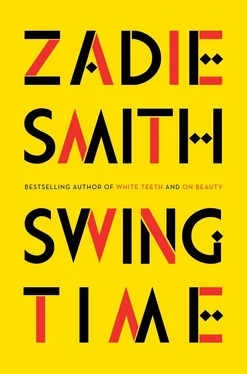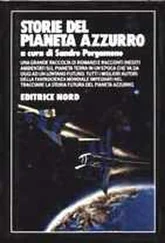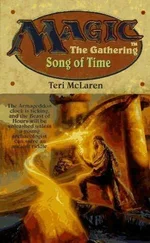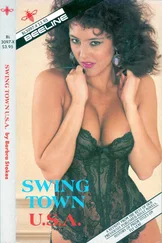“There are so many different ways to be poor,” murmured Hawa, in a sudden leap of inspiration. She was in the middle of collecting a pile of fish-bones from the floor.
“And rich,” I said, and Hawa’s brother, smiling faintly, conceded the point.
Six
The morning after the show the doorbell rang, too early, earlier than a postman. It was Miss Isabel, distraught. The cashboxes were gone, with almost three hundred pounds in them, and no sign of a break-in. Someone had let themselves in, overnight. My mother sat on the edge of the sofa in her dressing gown, rubbing her eyes against the morning light. I listened in from the doorway, my innocence presumed from the start. The discussion was what to do about Tracey. After a while I was brought in and questioned and I told the truth: we locked up at eleven-thirty, stacking all the chairs, after which Tracey went her way and I went mine. I thought she’d posted the key back through the door, but of course it’s possible she pocketed it. My mother and Miss Isabel turned to me as I spoke, but they listened without much interest, their faces blank, and the moment I had finished they turned away and returned to their discussion. The more I listened, the more alarmed I became. There was something obscenely complacent to me in their certainty, both of Tracey’s guilt and my innocence, even though I understood, rationally, that Tracey must have been involved in some way. I listened to their theories. Miss Isabel believed Louie must have stolen the key. My mother was equally sure he’d been given it. It didn’t seem unusual, at the time, that neither of them considered calling the police. “With a family like that…” said Miss Isabel, and accepted a tissue to dab at her eyes. “When she comes into the center,” my mother assured her, “I’ll have a talk.” It was the first I’d heard of Tracey going to the youth center, the one at which my mother volunteered, and now she looked up at me, startled. It took her a moment to regain her cool, but without looking me in the eye she began to smoothly explain that “after the incident with the drugs” she had naturally arranged for Tracey to get some free counseling, and if she hadn’t told me that was because of “confidentiality.” She hadn’t even told Tracey’s mother. Now I see that none of this was especially unreasonable, but at the time I saw maternal conspiracies everywhere, manipulations, attempts to control my life and the lives of my friends. I made a fuss and fled to my room.
Everything happened quickly after that. Miss Isabel, in her innocence, went to talk to Tracey’s mother and was more or less chased out of their flat, returning to ours looking shaken, her face pinker than ever. My mother sat her down again and went to make tea, but a moment later we heard the sound of the open front door banging in its frame: Tracey’s mother, propelled by her own unfinished fury across the road, up the stairs and into our lounge, where she stayed long enough to make a counter-accusation, a terrible one, about Mr. Booth. It was loud enough that I heard it through the ceiling. I ran down the stairs and right into her, she was filling the doorway, defiant, full of contempt — for me. “You and your fucking mother,” she said. “You’ve always thought you were better than us, always thought you were some kind of bloody golden child, but turns out it ain’t you at all, is it? It’s my Tracey, and all of you are just fucking jealous, and I’ll be dead before I let you people get in her way, she’s got her whole life in front of her and you can’t stop her with lies, none of you can.”
No adult had ever spoken to me like that before, as if they despised me. According to her, I was trying to ruin Tracey’s life, and so was my mother, and so were Miss Isabel and Mr. Booth, and miscellaneous others on the estate, and all the jealous mothers from dance class. I ran, crying, back up the stairs, and she screamed: “You can cry as much as you bloody want, love!” Upstairs I heard the front door slam and for several hours everything went quiet. Just before supper my mother came up to my room and asked a series of delicate questions — the only time the subject of sex ever came up explicitly between us — and I made it as clear as I could that Mr. Booth had never laid a hand on me or on Tracey, nor anyone else, as far as I knew.
It didn’t help: by the end of the week, he was forced to give up playing the piano in Miss Isabel’s dance class. I don’t know what happened to him after that, whether he carried on living in the neighborhood, or moved away, or died, or was simply broken by the rumors. I thought of my mother’s intuition—“Something serious happened to that girl!”—and I felt now that she was right as usual, and that if we had only asked Tracey the proper questions at the right moment and in a more delicate way we might have got the truth. Instead our timing was bad, we backed her and her mother into a corner, to which they both reacted predictably, with wildfire, tearing through whatever was in its path — in this case poor old Mr. Booth. And so we got something like the truth, quite like it, but not exactly.
One
That autumn, after clearing, I got into my second-choice university, to study media, half a mile from the flat gray English Channel, a scene I remembered from childhood holidays. The sea was fringed by a pebble beach of many sad brown stones, every now and then a large, pale blue one, pieces of white shell, knuckles of coral, bright shards easy to mistake for something precious that turned out to be only glass or broken crockery. My parochial city attitude I took with me, along with a pot plant and several pairs of trainers, sure that every soul on the street would be astounded to see the likes of me. But the likes of me were not so uncommon. From London and Manchester, from Liverpool and Bristol, in our big jeans and bomber jackets, with our little twists or shaved heads or tight-pulled buns slick with Dax, with our proud collection of caps. Those first weeks we gravitated toward each other, walking in a defensive gang together along the seafront, readied for insults, but the locals were never as interested in us as we were in ourselves. The salty air cracked our lips, there was never anywhere to get your hair done, but “You up at the college?” was a genuine polite inquiry, not an attack on our right to be there. And there were other, unexpected advantages. Here I had a “maintenance grant,” covering food and rent, and weekends were cheap — there was nowhere to go and nothing to do. We spent our spare time together, in each other’s rooms, asking after each other’s pasts, with a delicacy that felt right to people whose family trees could be traced back only a branch or two before being sunk in obscurity. There was one exception, a boy, a Ghanaian: he came from a long line of doctors and lawyers and was daily agonized not to find himself at Oxford. But for the rest of us, who were only ever one remove, or occasionally two, distant from father machinists and mother cleaners, from grandmother orderlies and grandfather bus drivers, we still felt we had done the miraculous thing, that we were the “first in our line to go,” and this in itself was enough. If the institution was almost as fresh as we were, that, too, came to feel like an advantage. There was no grand academic past here, we didn’t have to doff our caps to anyone. Our subjects were relatively new — Media Studies, Gender Studies — and so were our rooms, and the young faculty. It was our place to invent. I thought of Tracey escaping early into that community of dancers, of how jealous I’d been, but now on the contrary I felt a little sorry for her, her world seemed childish to me, just a way of playing with the body, whereas I could walk down the hall and attend a lecture called something like “Thinking the Black Body: A Dialectic,” or dance happily in my new friends’ rooms, late into the night, and not to the old show tunes but to the new music, to Gang Starr or Nas. When I danced now I didn’t have to obey any ancient rules of position or style: I moved as I pleased, as the beats themselves compelled me to move. Poor Tracey: the early-morning starts, anxiety on the scales, her aching insteps, the offering up of her young body to the judgment of other people! I was very free compared to her. Here we stayed up late, ate as we pleased, smoked weed. We listened to the golden age of hip-hop, unaware at the time that we were living through a golden age. I got schooled on lyrics by those who knew more than me and took these informal lessons as seriously as anything I heard in the lecture halls. It was the spirit of the times: we applied high theory to shampoo ads, philosophy to NWA videos. In our little circle to be “conscious” was the thing, and after years of forcing my hair straight with the hot-comb I now let it frizz and curl, and took to wearing a small map of Africa around my neck, the larger countries made out in a patchwork leather of black and red, green and gold. I wrote long, emotional essays on the phenomenon of the “Uncle Tom.”
Читать дальше












